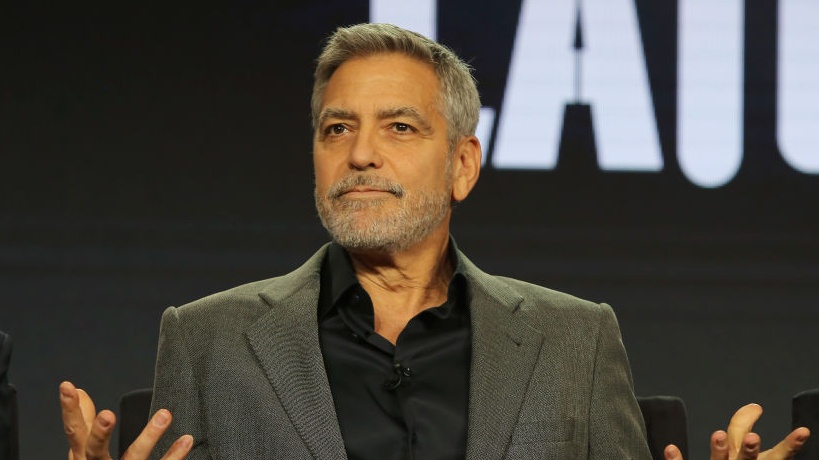As the Derek Chauvin trial nears the end of its second week, there has been a slew of disturbing takeaways, one being that the former Minneapolis police officer knelt on George Floyd’s neck for a startling nine minutes and 29 seconds, 43 seconds longer than originally reported.
Despite the doctor who pronounced Floyd dead concluding asphyxia was likely the cause, Chauvin's defense team is now claiming he died as a result of drugs, according to The New York Times.
Actor George Clooney offered a scathing piece of advice in tandem with the claims, sharing his thoughts in an email with renowned civil rights attorney and the Floyd family’s lawyer, Benjamin Crump.
“Attorney Crump, you should tell them that if Derek Chauvin feels so confident in that, he should volunteer during his case to get down on the floor in that courtroom and let somebody come and put their knee on his neck for 9 minutes and 29 seconds and be able to see if he can survive,” Crump recalled in the email Clooney wrote, according to HuffPost.
As Blavity previously reported, Chauvin plead not guilty to second-degree unintentional murder, third-degree murder and second-degree manslaughter charges.
The ER actor has vocalized his opinion on the case, which sparked global outrage, claiming that “there is little doubt that George Floyd was murdered.”
“This is our pandemic. It infects all of us, and in 400 years we’ve yet to find a vaccine,” the 59-year-old wrote in an op-ed for The Daily Beast.
“The anger and the frustration we see playing out once again in our streets is just a reminder of how little we’ve grown as a country from our original sin of slavery,” he continued in his piece.
In an interview with Variety, Clooney reflected on 2020, saying “[On the whole], it was a terrible year.” He added that it’s imperative to continue to hold companies accountable in the fight for Black justice.
“There was that moment after George Floyd where [the atmosphere] was really electric,” he told the magazine. “I went to companies and said this is the time for you to be donating money to these [diversity and inclusion] causes, and corporations were so clear that they needed to be more involved, and they jumped. You could feel it, a real intent: ‘OK, we have to get a higher level of minorities in decision-making positions.’ So you did see the commitment to it.”
“Now the question is about the follow-through because the follow-through is very different from everything happening in the heat of the moment,” he continued. "I think it’s incumbent on all of us to continue to force that argument…and hold people’s feet to the fire as much as possible and to keep pushing these people in positions of power to be more inclusive.”

